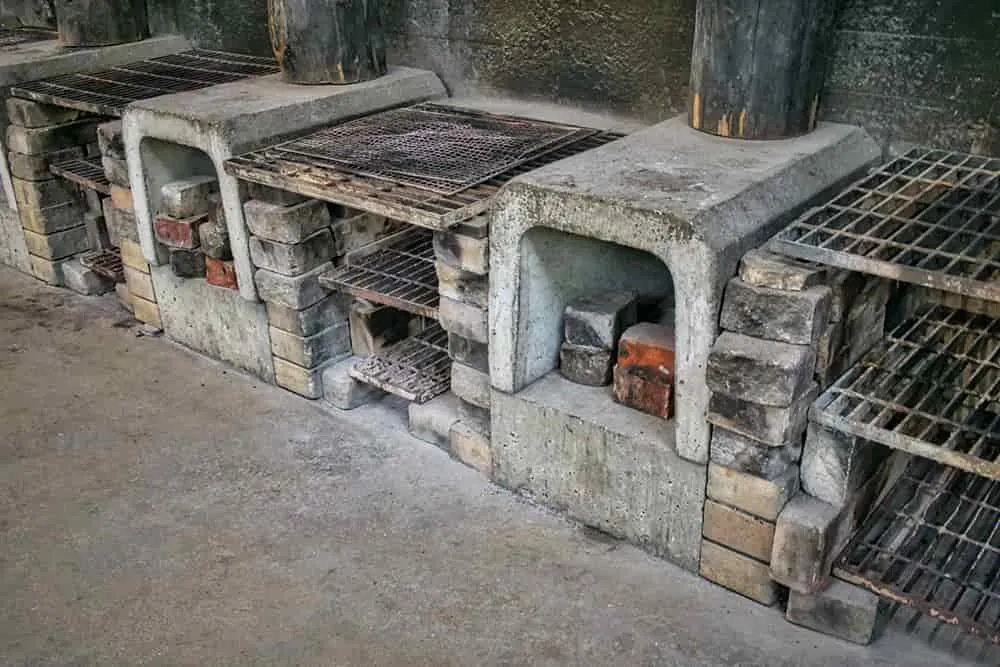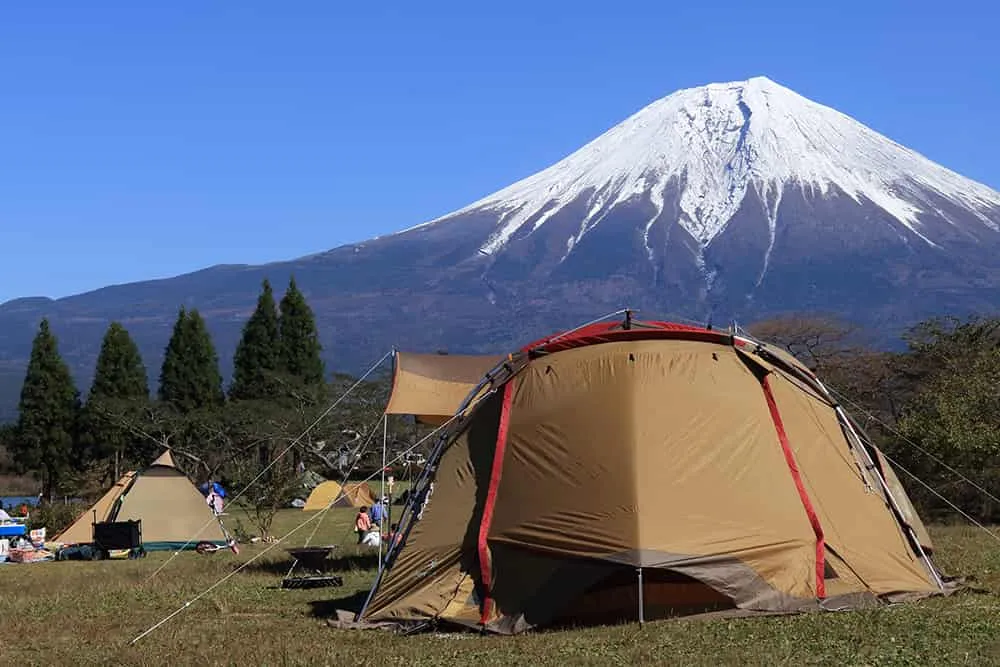Many people may think that winter is the off-season for camping. In fact, however, winter camping offers many attractions that cannot be experienced in summer.
In this issue, we will introduce the charms and fun of winter camping, as well as how to choose a campsite for a successful winter camping experience.
 Appeal of Winter Camping
Appeal of Winter Camping
Many people probably think of “summer” when they think of camping. However, there are many attractions and ways to enjoy winter camping that are just as good as summer camping! We have compiled the following list of the best things about winter camping that can only be experienced during winter.
Great discounts and cheap plans
In summer, many people enjoy camping, and it is sometimes difficult to get reservations at popular campgrounds. In contrast, winter is the off-season, so even campgrounds that are usually crowded are usually relatively empty. What’s more, some campgrounds offer special discounts and low-cost plans only available in winter, so you can enjoy camping at a reasonable price compared to summer.
While a lively atmosphere with many people is nice, winter camping is recommended if you want to enjoy nature in a quiet and relaxing atmosphere. Why not spend an elegant time surrounded by comfortable silence?
The stars are at their most beautiful
Winter, when the air is cool and clear, is the perfect season for stargazing. In particular, campsites in winter, where there are no tall buildings or lights around, offer the perfect conditions for star gazing.
Winter campers tend to worry about how to spend the long nights when the sun sets early, but once you are in front of the star-filled sky, you will lose track of time. You can also look for various winter constellations using the “Great Winter Triangle” as a landmark.
Campfires
 Speaking of winter camping, you can’t miss “bonfires”. They are a symbol of the campsite and light up the area, serve as a substitute for heaters, and add to the mood of winter camping as you enjoy cooking.
Speaking of winter camping, you can’t miss “bonfires”. They are a symbol of the campsite and light up the area, serve as a substitute for heaters, and add to the mood of winter camping as you enjoy cooking.
The time and effort required to light a fire is one of the most enjoyable aspects of a campfire. The sound of crackling wood and the aroma of soot are also attractions that can only be experienced in the great outdoors.
Just looking at the fire will soothe your body and soul, but if you gather around the fire with others, it will also become a communication tool that will spark conversation.
Winter Camping Meals
Winter campers can enjoy a variety of foods cooked over an open fire. In addition to setting a grill on top of the fire pit and barbecuing, cooking with a “Dutch oven” is also recommended.
The Dutch oven’s greatest appeal is that it makes it easy to cook “stewed dishes,” which you will want to eat on the colder days. The most popular recipes include roast beef, spare ribs, beef stew, and oden. Although stewed dishes take a long time to prepare, once the ingredients are added, all you have to do is leave it alone, and can enjoy authentic outdoor cooking with ease. In addition to stewed dishes, the cooker can also be used for baked and steamed dishes, so your camping cooking repertoire is sure to expand dramatically.
In the evening, you can enjoy a grown-up moment over a glass of “hot wine,” which is wine simmered with fruits and spices.
 For those who don’t like bugs
For those who don’t like bugs
For those who are interested in camping but dislike bugs, sleeping in the great outdoors can be quite a daunting prospect. Especially in summer camps, insects are attracted to the light from lanterns and light bulbs at night, even if you take sufficient precautions such as using insect repellant spray.
However, most of the insects that were so common from spring through fall are hibernating for the winter, so they disappear completely. Even if you have been hesitant to go outdoors because of insects, winter camping allows you to enjoy the outdoors to your heart’s content!
 How to Choose a Successful Winter Campsite
How to Choose a Successful Winter Campsite
There are many things to keep in mind when choosing a winter campsite compared to other seasons. Here are some tips for beginners on how to choose a winter campsite.
Areas that are warm in winter
The first thing to check is to choose a campground where the temperature is high, even in winter. It is said that for every 100 meters of elevation gain, the temperature drops about 0.6 degrees Celsius, so if you want to keep nighttime temperatures as low as possible, choose a campsite at the lowest possible elevation.
At night, except the coldest and coldest bottom temperatures imaginable. If this is your first time camping in winter, it is also a good idea to check if there are hot springs or cottages nearby where you can take shelter in case of cold weather.
Campsites with AC power
Since the use of combustion devices is strictly prohibited in tents, electric blankets, electric heaters, hot carpets, and other electric heating devices are very useful.
One option is to choose a rechargeable heating device or bring a portable battery, but it would be difficult to run out of charge in the middle of the campsite. If you want to be sure to use your heater until morning, it is important to check if the campground has AC power supply sites.
Cooking area with hot water
 It is also important to check if hot water is available at the cooking area. Washing hands, brushing teeth, and dishes with cold water in the bitter cold of winter can be quite difficult. Hot water is also better for removing grease stains after a barbecue.
It is also important to check if hot water is available at the cooking area. Washing hands, brushing teeth, and dishes with cold water in the bitter cold of winter can be quite difficult. Hot water is also better for removing grease stains after a barbecue.
If hot water is not available at the cooking area, you can use a camping kettle to boil water, but a cooking area with hot water will be much more comfortable.
Easy access
The next point in choosing a winter campsite is the accessibility from the interchange to the campsite.
In winter, snow and icy roads can occur, so you need to be careful even on roads that you did not have to worry about in spring and fall. If you have a 2WD vehicle that is not designed for outdoor activities, it is best to avoid campgrounds with steep mountain roads.

It is also important to get used to going camping before the real winter sets in. As you do so, ask yourself, “What am I missing if it gets colder?” You will also have some idea of what temperatures you can endure. First, choose a warm area and make sure you are prepared for the cold before making your winter camping debut!